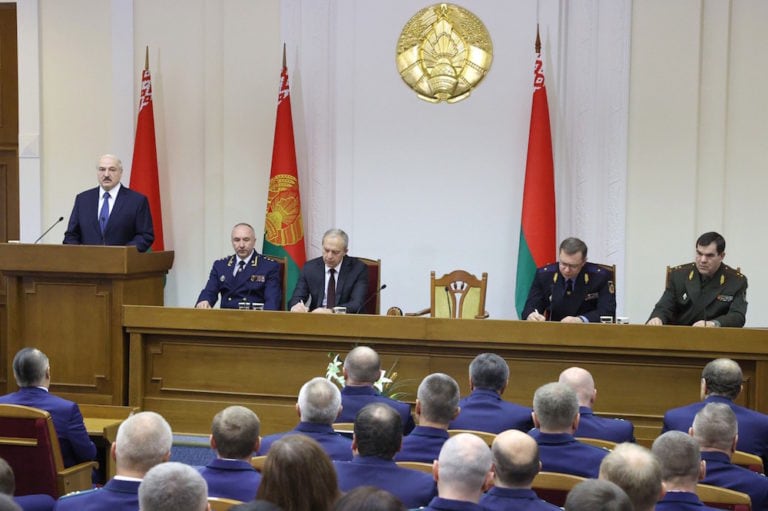(IFJ/IFEX) – The following is a 6 February 2002 joint press release by the IFJ and the Association générale des journalistes professionnels de Belgique (AGJPB): PRESS RELEASE OF THE ASSOCIATION GENERALE DES JOURNALISTES PROFESSIONNELS DE BELGIQUE (AGJPB) AND THE INTERNATIONAL FEDERATION OF JOURNALISTS (IFJ) Journalists’ materials seized by Steenokkerzeel police On 26 January, the Steenokkerzeel […]
(IFJ/IFEX) – The following is a 6 February 2002 joint press release by the IFJ and the Association générale des journalistes professionnels de Belgique (AGJPB):
PRESS RELEASE OF THE ASSOCIATION GENERALE DES JOURNALISTES PROFESSIONNELS DE BELGIQUE (AGJPB) AND THE INTERNATIONAL FEDERATION OF JOURNALISTS (IFJ)
Journalists’ materials seized by Steenokkerzeel police
On 26 January, the Steenokkerzeel police prevented a film shooting from taking place and seized the tape shot by a crew that was producing a report outside the Centre 127bis in Steenokkerzeel. The justification from police for their action was the presence of “dangerous propaganda materials and the risk of disturbing public order.” The AGJPB and the IFJ protest this police action, which constitutes an obstruction to access to information and journalism.
Dominique Darmon, a Canadian journalist who lives in Belgium, is producing a twenty-minute report for Vision TV (a Canadian national television station) about refugees in Belgium. The Centre’s director did not give her the authorisation to film inside Centre 127bis, but assured her that filming outside the centre’s gates would not pose a problem.
Having reached this agreement with the Centre’s director, on 26 January journalist Dominique Darmon and Dutch cameraman Marc Roets undertook to film, from outside the Centre’s gates, the “dialogue” between a few members of the Collectif contre les expulsions et les centres fermés et des réfugiés enfermés (Collective Against Expulsions, Closed Centres and Locked up Refugees). Three police vehicles, with seven police officers on board, arrived immediately. The police declared the shooting to be “illegal” and “dangerous for the people in the Centre,” due to the presence of “activists” from the Collective. The officers forced the cameraman to hand over the tape of the filming that was in progress and ordered him to dismantle his microphone. They also searched members of the Collective.
Responding to the journalists, who protested that the police were not respecting freedom of expression and democracy, one of the officers said, “it is not a democracy here.”
Contacted on 29 January, the Steenokkerzeel police superintendent refused to return the seized tape, on the pretext that it “contains dangerous material that could be used as propaganda and hence disturb public order.” He added that in any event, any decision concerning the return of the materials would be delayed by at least six months, since the burgomaster would also have to view the tape.
The AGJPB and the IFJ protest this obstruction to journalists’ work and access to information. The crew did not break any rules and simply wanted to report on the true situation of closed centres in Belgium. The fact that this situation is already being concealed from the public through the systematic refusal to allow filming inside the closed centres is already questionable, in and of itself. That this ban should now expand to include shooting outside the centres is unacceptable and contrary to the principle underlining the freedom to inform in a democracy.
The IFJ and the AGJPB have sent letters today to the Steenokkerzeel superintendent and burgomaster, as well as the minister of the interior, requesting an explanation for this state of affairs.
Brussels, 6 February 2002


